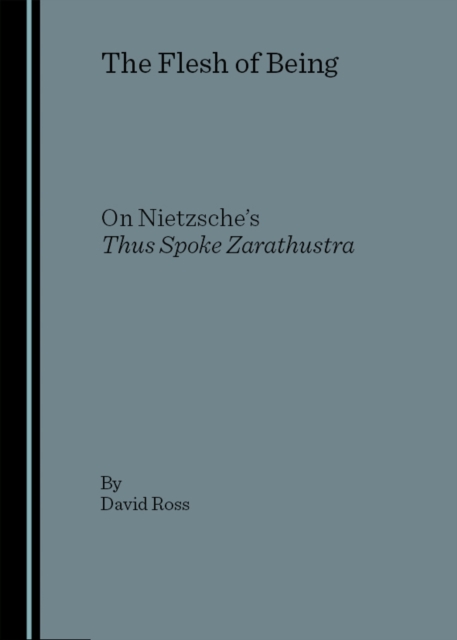
The Flesh of Being : On Nietzsche's Thus Spoke Zarathustra PDF
by David Ross
Description
The text is a conversation between the author and himself mediated by the text of Friedrich Nietzsche's Thus Spoke Zarathustra. The text is a pre-text, a reading both before and after that frames the art work. What is that? Let us say, in the spirit of inquiry, that of knowing thyself. What, then, of this strange hyphenation?
The present text is a pre-text because it is before the Text, the text which the author is always writing but which manifests itself, in sporadic, impulsive bursts, in the form of actual works. The book is the pre-text because it is an excuse, a rationale, a piece of pretension. The book is not about Nietzsche but what it is for someone to read Nietzsche's text, a book for everyone and no one. How then does one read a book meant for oneself, if oneself is everyone, and not at all for oneself, if oneself is none? Or is it that the real task of reading is for the reader to read what reading is?
Then again, need one distinguish between book and text? Perhaps, it is impossible to read a book such as Thus Spoke Zarathustra without invoking the text --or even sub-text - that continually slips away. If one can read a book, one cannot the text for this reason: the text is what the reader has to write through the reading. This has been my experience with Nietzsche's text, an experience I share with my readers. The very possibility of reading invokes the need to re-write the text. Only in the space between reading and writing can the reader/re-writer hope to stand and understand the discursive grounds. Is that the play which this couplet performs? There, does not the reader enters upon the playground. Read then and play!
The author's thanks go to Mr. Andrew Fuyarchuk for the fine editing job that he did. His contribution allowed further clarifications of the argument.
Information
-
Download - Immediately Available
- Format:PDF
- Pages:205 pages
- Publisher:Cambridge Scholars Publishing
- Publication Date:18/12/2008
- Category:
- ISBN:9781443802611
Information
-
Download - Immediately Available
- Format:PDF
- Pages:205 pages
- Publisher:Cambridge Scholars Publishing
- Publication Date:18/12/2008
- Category:
- ISBN:9781443802611






